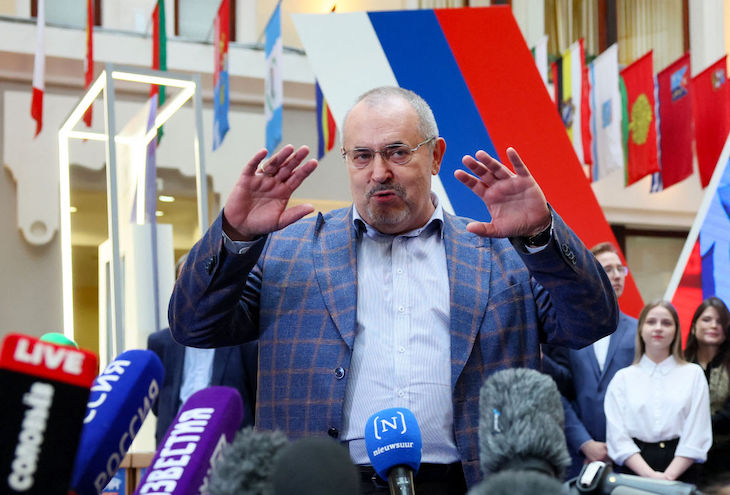Despite a little eleventh-hour drama, Boris Nadezhdin’s bid to become the only genuine opposition candidate in March’s Russian elections has been blocked. What’s interesting is not that he was barred, but what this whole process says about the evolution of ‘late Putinism.’
Once, after all, it was marked both by a – limited but real – degree of genuine pluralism, especially at a local level, and also dramaturgiya, a theatrical facsimile of genuine democratic politics.
Already a subscriber? Log in
Subscribe for just $2 a week
Try a month of The Spectator Australia absolutely free and without commitment. Not only that but – if you choose to continue – you’ll pay just $2 a week for your first year.
- Unlimited access to spectator.com.au and app
- The weekly edition on the Spectator Australia app
- Spectator podcasts and newsletters
- Full access to spectator.co.uk
Or




















Comments
Don't miss out
Join the conversation with other Spectator Australia readers. Subscribe to leave a comment.
SUBSCRIBEAlready a subscriber? Log in